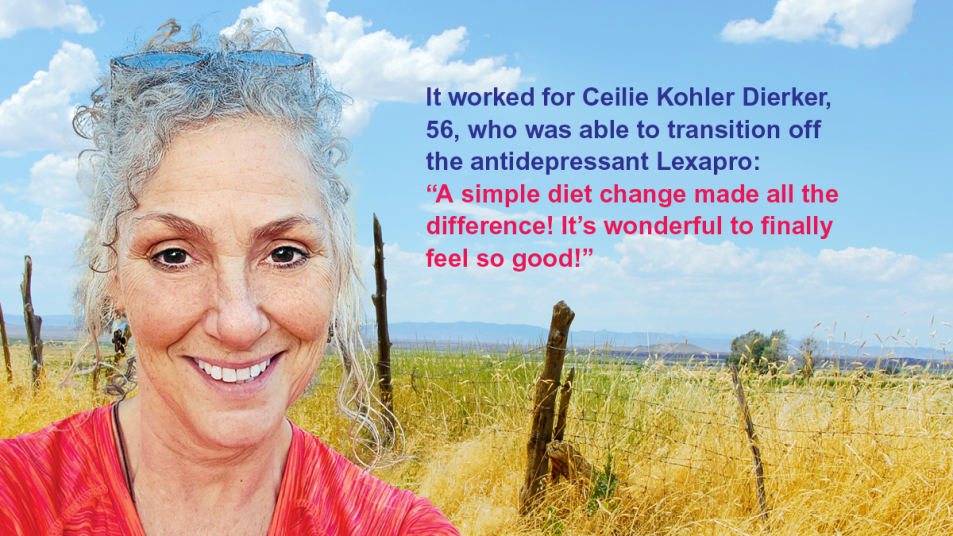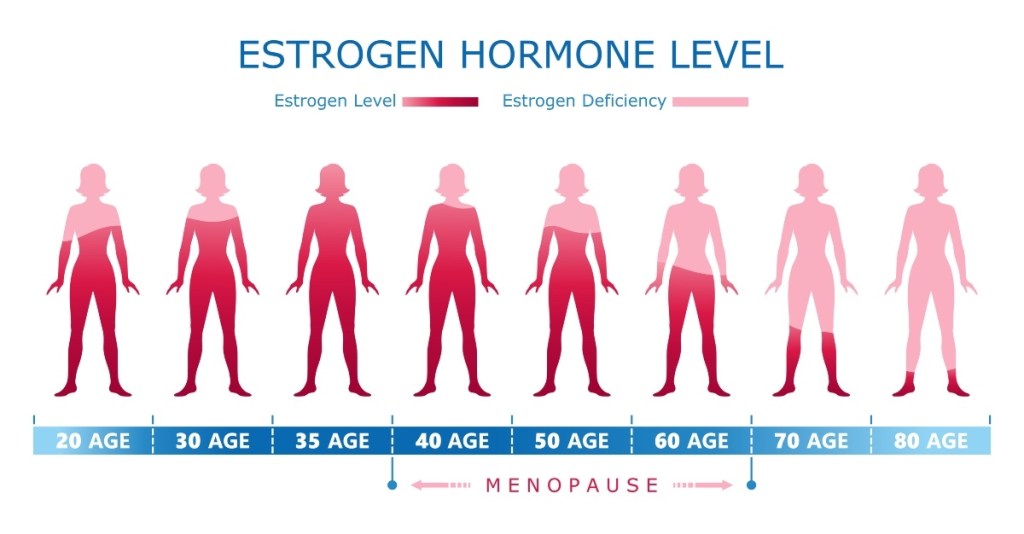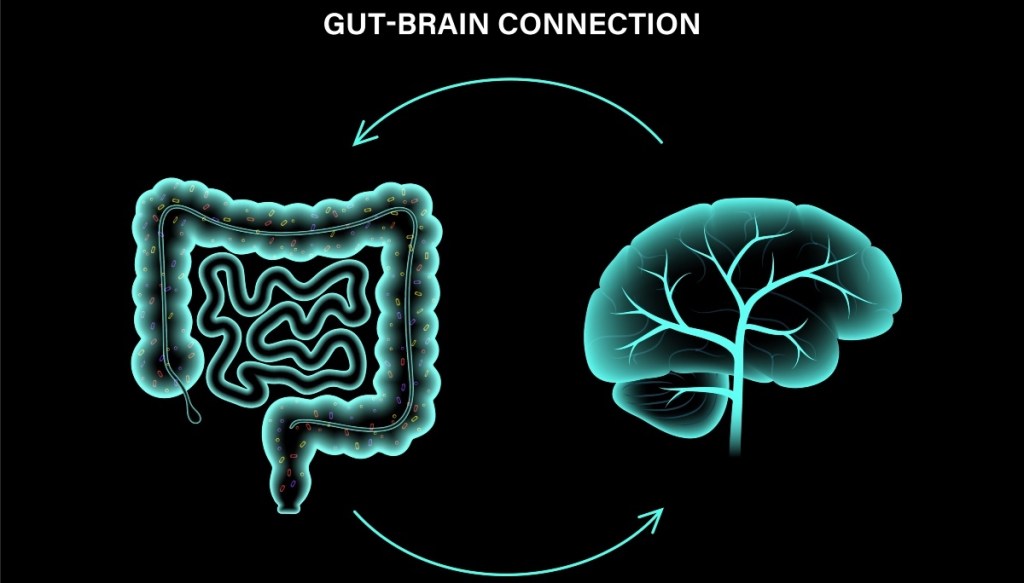Getting More Dietary Fiber Can Work Better For Some Women Than Antidepressants, Says MD
Fiber feeds the 'good bugs' that increase serotonin production in your gut and so may improve mood

You already know that feeling anxious or blue now and then is part of life. It’s normal to worry about things like health, money, your family, your future. But, as most of us have experienced, from time to time, worry can seem to take over your life — and sap all the joy out of it. Antidepressants may seem like a straightforward fix. But they can be pricy and have unwanted side effects such as fatigue and insomnia, plus they can do a number on your libido. The good news: Natural remedies such as dietary fiber may work to lift your mood as good as, and sometimes better than, an antidepressant. Read on to learn how nourishing your gut with fiber-rich foods can inexpensively and dramatically positively impact your mental health.
Understanding anxiety and depression
Anxiety is often characterized by feelings of worry, unease, irritability, or nervousness. But it can also manifest in physical symptoms such as muscle tension, lack of focus, GI upset, sweating and/or a rapid heart rate. Nearly 20% of adults in the US experience anxiety disorders, and women have double the risk of anxiety that of men. The most common is Generalized Anxiety Disorder, or constant worrying that you’re unable to control.
What’s more even though we think of anxiety as being ‘up’ and depression as being ‘down,’ anxiety can be a symptom of clinical depression. And depression can often be triggered or worsened by anxiety, creating a vicious cycle. Anxiety and depression are like two sides of a bad mood coin. Risks of the conditions increase for women in their 50s, a decade often marked by the onset of menopause and a convergence of life stressors.
The link between mood and menopause
As you already know if you’re over 50, menopause is more than just a reproductive milestone: It comes with significant hormone fluctuations that can exacerbate anxiety and depression. And women aren’t just experiencing physical changes, but also significant life adjustments. Children leaving home, career evolution and/or new family care responsibilities can increase feelings of stress, anxiety and depression.
“Feeling depressed, loss of energy, tired, and fatigued are very, very common symptoms of menopause,” explains menopause expert Mache Seibel, MD, author of The Estrogen Fix. “Anxiety is the most common, even though women will talk more about hot flashes. If a woman has a tendency to anxiety or depression, it gets amplified that much more in perimenopause and ultimately at menopause.”
Largely to blame: The decline in estrogen during menopause. The sex hormone affects your body’s production of serotonin, a brain chemical so vital to mood regulation it’s known as the “feel-good” chemical. “Estrogen increases serotonin,” Dr. Seibel notes. “As estrogen diminishes, so does the serotonin level, which is pivotal for mood.” (Click through to learn more about the link between menopause and irritability — plus how to usher in calm.)

‘Lexapro fatigue’ and antidepressant side effects
Considering the critical role serotonin plays in regulating our mood, it’s no wonder so many folks turn to antidepressants such as Lexapro for help. These types of medications, classified as selective serotonin reuptake inhibitors (SSRIs), work by increasing serotonin availability, which can ease symptoms of anxiety and depression. Dr. Seibel explains that SSRIs block the reabsorption (reuptake) of serotonin in the brain, making more serotonin available to the body to improve transmission between neurons.
The hitch: SSRIs can come with unwanted side effects such as nausea, constipation, dry mouth, a decreased sex drive and perhaps most bothersome, fatigue. In fact, folks often refer to the phenomenon as “Lexapro fatigue”. Rather than lifting your energy when you’re anxious or depressed, the medication can leave you feeling drowsy and tired. Lexapro fatigue is most common for the first several weeks after you start the medication and for most folks it typically improves over time.
How dietary fiber can be better for your mood than an antidepressant
If you’d rather try natural remedies to lift your mood and ease your anxiety before turning to antidepressants, fiber can help (without the side effects of SSRIs). How? It nourishes your gut, which helps boost your serotonin levels. Dr. Seibel says there’s an important link between gut flora, the intricate ecosystem of bacteria and other microbes that live on your body, and brain function. This gut-brain axis serves as the communication pathway between your gut and your brain. It means that your gut can affect your mood and thoughts, and vice versa.

Dr. Seibel explains that a diet rich in fiber from vegetables, fruits, and whole grains nourishes these beneficial gut microbes, facilitating their role in managing mood-lifting serotonin. In fact, nearly 95% of your body’s serotonin is synthesized in the gut, with the help of the roughly three pounds of gut bacteria that contribute to digestion and hormone production.
“When people say they have a ‘gut feeling,’ it’s based on the fact that people do have feelings in terms of their gut bacteria,” Dr. Seibel says. “The way that food becomes part of this is that fiber found in the foods that are good for us are what the bacteria prefer and what helps the bacteria. They’re the ones that are helping us by producing and regulating serotonin.”
For some women, especially those prone to medication side effects, that can make dietary fiber better for your mood than antidepressants. “It’s not because you’re eating fiber that you’re feeling better,” Dr. Seibel says. “It’s that the fiber is affecting the bacteria, which is then affecting mood. If we keep that ecosystem optimized, we’re getting their benefits.” (The benefits of fiber don’t stop there. Click through to learn how much fiber you need to lose weight, why fiber is one of the best foods for constipation and how a type of fiber called psyllium husk may be key to weight loss.)
How to use food as medicine
A growing body of research links diets rich in vegetables, fruits, whole grains, nuts, seeds, and fish, and with limited processed foods, to a lower risk of depression. “There’s a whole area of psychiatry now that’s called nutritional psychiatry that focuses on food as being a potential recipe for a better mental health in terms of anxiety and depression,” says Dr. Seibel, who is also the co-author of Eat to Defeat Menopause. “Just changing the diet to include more whole foods, fruits, vegetables, whole grains, and nuts such as almonds, walnuts and hazelnuts can have such a beneficial effect.”
Also smart: Upping your intake of probiotic-rich fermented foods and prebiotics in the process. “Probiotics are live microorganisms that maintain or improve the ‘good’ bacteria in the body,” Dr. Seibel says. He notes that fermented foods like yogurt, sauerkraut, kefir (a fermented milk drink), kimchi (fermented veggies), and kombucha (fermented tea) are great sources of probiotics. (Click through to learn how to make probiotic-rich yogurt at home.)
Prebiotics, found in whole grain and plant-based foods, perform a different role: They act as “food” for the gut’s beneficial microflora. “The goal is to maintain a balance of the ‘good’ vs. ‘bad’ bacteria so that the good bacteria flourish with the end result of the individual being healthier,” Dr. Seibel explains.

Foods that nourish the gut and your mood
To keep you gut happy and mood bright, Dr. Seibel advises a diet that focuses on nutrient-rich and low-calorie options. In addition to the fermented foods and whole grains mentioned above, this includes:
- Fruits: unpeeled apples and pears, berries, avocado, pineapple, pomegranate
- Vegetables: broccoli, cauliflower, sweet potato, pumpkin, beetroot, leeks
- Nuts: almonds, cashews, hazelnuts, coconut
- Seeds: chia seeds, flaxseed, quinoa
- Lentils and legumes: chickpeas, peanuts, kidney beans, green peas
Incorporating these tasty foods into your daily diet can have a dramatic effect on your mood. Read on to learn how, for one woman, increasing her dietary fiber intake proved to be better for her mood than an antidepressant.
Dietary fiber success story: Ceilie Kohler Dierker, 56
Ceilie Kohler Dierker, 56, could feel her anxiety mounting until she felt so overwhelmed, she once again lost it with her husband over something inconsequential. “It’s time to see the doctor,” he insisted. The next day, her doctor confirmed she needed to go back on her medication.
Ceilie had been taking Lexapro, a drug used to treat depression and anxiety, for several years. While it can be energizing for some people, for others like Ceilie, it can have the opposite effect, zapping energy. I have to get off this, Ceilie had decided. But once she was weaned off, she experienced severe anxiety mixed with rage and a sense of malaise.
Ceilie went back on the drug and, while she experienced almost immediate relief from the wild moods, she didn’t want to be on the energy-sapping medication the rest of her life. Once stabilized, she reached out to a friend who was a nutritionist and told her what was going on. The friend, who had been through something similar, suggested Ceilie pick up a copy of The Fiber Fueled Cookbook by Will Bulsiewicz, MD. The book outlined the connection between fiber and the production of serotonin, the body’s “feel good” neurotransmitter, which is crucial in reducing depression and anxiety.
Ceilie learned how to “feed” her gut
Intrigued, Ceilie ordered the book. She learned that a fiber-rich diet promotes a healthy gut microbiome (friendly bacteria). That helps the gut make serotonin, 95% of which is made in the gut by healthy bacteria. Prebiotics and fermentable fiber feed beneficial bacteria. And the fermentation process also produces short-chain fatty acids that regulate the pH level in the gut, making it favorable for the growth of good bacteria.
That a simple change in diet could cure her anxiety seemed too good to be true, but also too easy not to try. Following the recommendations in the book, Ceilie slowly began increasing the amount of beans, grains, broccoli and other fiber-rich foods she was eating. She added oatmeal to her daily diet, mixing in peaches, raisins and nuts. Ceilie also began blending fibrous plant-foods, including fruit, leafy greens and almond milk for breakfast. She even drank the fiber-rich smoothies in the evening to fend off binging on unhealthy processed foods.

How fiber freed Ceilie from her antidepressant
After a few months, Ceilie found that her moods were brightening, even during the shorter, dark days of winter when she usually felt more depressed. And her anxiety was down to a point where her medication could be reduced by 25% without feeling the ill effects she had before. She stuck to her fiber diet and, with her doctor’s guidance, slowly weaned off the medication completely.
“I feel great! Making simple changes to my diet made all the difference,” Ceilie says. “I’m medication-free, calmer and have more energy. I’ve also lost 18 lbs. It’s wonderful to finally feel so good!”
For more natural ways to ease anxiety and depression:
Revolutionary ‘Tapping’ Technique Dials Down Anxiety By 67% in 10 Minutes, Says Study
Pickleball Delivers Many Health Benefits — Discover How It Lifted One Woman’s Depression
30 Journal Prompts That Boost Bliss, Slash Stress and Ease Anxiety — In Minutes!
This content is not a substitute for professional medical advice or diagnosis. Always consult your physician before pursuing any treatment plan.
















